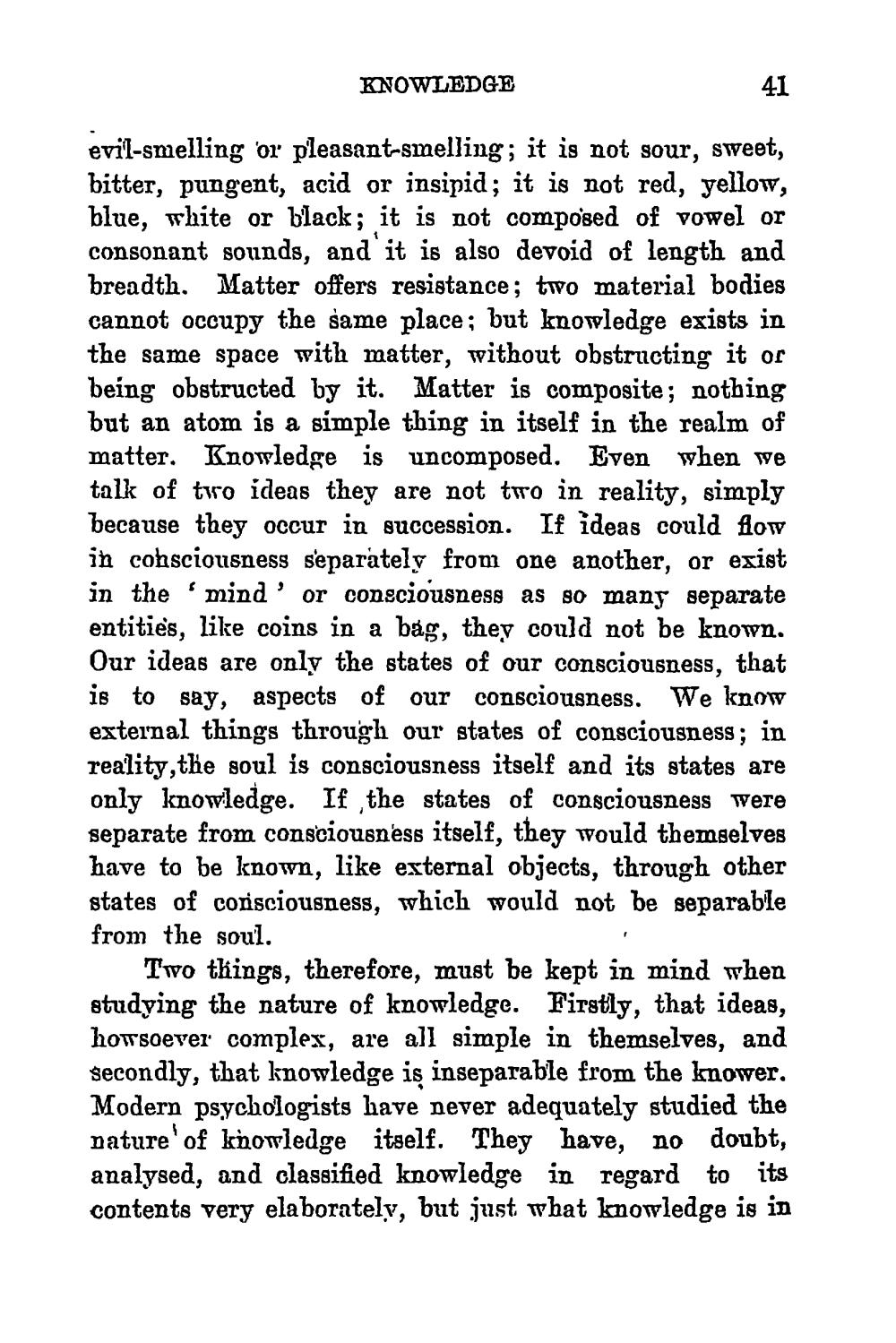________________
KNOWLEDGE
evil-smelling or pleasant-smelling; it is not sour, sweet, bitter, pungent, acid or insipid; it is not red, yellow, blue, white or black; it is not composed of vowel or consonant sounds, and it is also devoid of length and breadth. Matter offers resistance; two material bodies cannot occupy the same place; but knowledge exists in the same space with matter, without obstructing it or being obstructed by it. Matter is composite; nothing but an atom is a simple thing in itself in the realm of matter. Knowledge is uncomposed. Even when we talk of two ideas they are not two in reality, simply because they occur in succession. If ideas could flow in cohsciousness separately from one another, or exist in the mind' or consciousness as so many separate entities, like coins in a bag, they could not be known. Our ideas are only the states of our consciousness, that is to say, aspects of our consciousness. We know external things through our states of consciousness; in reality,the soul is consciousness itself and its states are only knowledge. If the states of consciousness were separate from consciousness itself, they would themselves have to be known, like external objects, through other states of corisciousness, which would not be separable from the soul.
Two things, therefore, must be kept in mind when studying the nature of knowledge. Firstly, that ideas, howsoever complex, are all simple in themselves, and secondly, that knowledge is inseparable from the knower. Modern psychologists have never adequately studied the nature of knowledge itself. They have, no doubt, analysed, and classified knowledge in regard to its contents very elaborately, but just what knowledge is in




